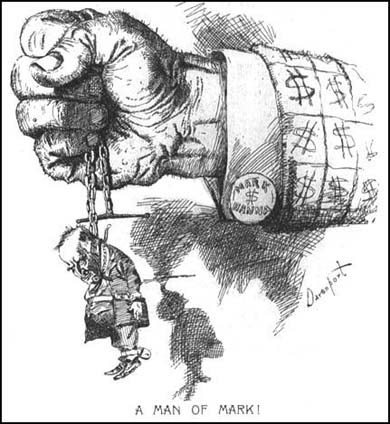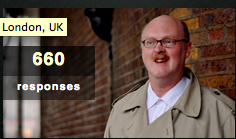 The go-to phrase for anyone talking about news sites is “interactive”. But what the heck does that mean when it comes to journalism?
The go-to phrase for anyone talking about news sites is “interactive”. But what the heck does that mean when it comes to journalism?
First, let me define what I mean by journalism because not enough people do. My definition is “borrowed” from David Nordfors: he defines journalism broadly as content created to meet the needs/demands of the public. This is in stark contrast to PR or activism which is created to meet the needs of the company, author or cause. As Pultizer said:
“Our repuplic and its press will rise or fall together… day after day, the existence of the newspaper is dependent on the approval of the public”.
News Doesn’t Pay
Mathew Ingram wrote a post today about the need for newspapers to “engage”. He includes a very interesting study by Hal Varian who points out that people spend on average only 70 seconds on online news a day. As Ingram is quick to point out, Varian is Google’s Chief Economist so the study is big on the economics and light on anything resembling a solution – and he may have an inherent bias given his employer. What is clear is that news companies have never made money on news, they’ve made money on the things that were adjacent to the news: classifieds, travel, car sales, etc. Those are gone and not surprisingly the news business is in a well publicized death spiral – well, traditional news as in newspapers and their digital equivalents. The solution: engagement. Get them to people to spend more than 70 seconds on the site.
Will We Ever Get Beyond Comments?
Those are pretty words and the panacea for all things Internet. But does it have any relevance to journalism? As usual there is the must-have reference to “comments”. People read commented stuff more and they come back more. OK. That can pass for interaction… in 1999. Google itself has gone back and forth on allowing comments on their news section, so it’s funny coming from them. Ingram points out that more important than just comments is whether the journalist participates in the comments thread. When that happens, things improve significantly – no statistics on this are provided, but I certainly have witnessed it and experienced it. Bottom line: comments help, author participation makes all the difference, but comments really aren’t going to cut it.
The News Raises More Questions Than It Answers
Although the news is meant to inform, it typically raises more questions than it answers. Even a simple story about a car accident can raise questions: is that a dangerous intersection? how many accidents have there been at that spot? is anything being done to make it less dangerous? Most of this kind of data is readily available and has the potential to turn a tedious snippet into something interesting. Imagine if the story was about health care or a supreme court decision rather than a car accident?
Journalist Know A Lot More Then They Are Telling
Most journalists write a story that includes about a zillionth of what they actually know about the topic. When a journalist does a story on health care, or reports the latest congressional silliness, he/she actually knows a great deal more about the subject then is included in the piece being written. Many journalists could, and do, write books about the subjects they cover. In the news story they have some small number of words in which to cover “the news”.
Why Don’t We Capitalize On That Knowledge?
Since the news raises a lot of questions and the journalist knows a lot, why not let the readers ask the journalist some questions? Why doesn’t every news story end with something like: “If you have questions about this story then ask the journalist”. The community could then get answers to the questions raised by the news. When the Supreme Court rules on campaign finance I expect the journalist will cover the obvious implications. But I’d have a lot of questions as I imagine most people would.
Questions Are At The Heart Of Real Interaction
Ever sit around a dinner table or a conference table and have people tell you what they did that day or give you the departmental summary? If you have then you have also wished you were somewhere else. The thing that makes things interesting is when someone asks a question. The great thing about a question is that it implies interest on the part of the person asking and it gives the person answering a chance to express an opinion while being helpful. The questions asked invariably teach you something about the community and the answers, well they do too.
Journalists Know People
Let’s up the ante one step further. In the course of writing an article or covering a story, the journalist interviews sources. These people are either experts on the subject or people whose opinions are relevant because of their position (e.g. they are a politician). Why not let them answer questions too! Invite them to participate. Highlight their presence, invite the community to ask them questions, highlight their answers. The journalist already has their contact information and most people think they are not well represented by the media, so why not let them have a shot at it themselves and see how easy it is(n’t).
Should Everyone Be Allowed To Answer?
I could make a radical suggestion and even contemplate letting the community answer each others questions. I wouldn’t go overboard with this, not everyone in the community is an expert. But many of them are. So the solution is pretty simple. Yes. Let the community ask questions as well as answer them, but make sure the journalists answers come first.
Can You Make Money Doing This?
Well, first let’s agree that it’s likely to actually engage people and keep them on your site longer. In fact they will have a sense of membership on your site, especially if you give them a basic profile and aggregate their contributions on the profile – they’re now a contributor to your site! They have their own column/byline in the shape of a profile. They are community, they are engaged, they are then likely to come back. Good start.
Time is Money – Ask Facebook
Once you have an engaged community there are many more ways to make money. Look, if Facebook can make (a rumored) 1-2 billion dollars a year on their site then you have to believe that time is money. Facebook focused on getting them there and keeping them there and then… well they might make billions. So get ’em there, keep ’em there.
oh… and feel free to comment or better still ask me a question.
 Ask members of the local music community questions about everything you need to know about the music industry–from booking a show to signing a record contract. Panelists include Eli Anderson of the Crocodile, Michelle Smith of the Comet, Nick Heliotis of Hardly Art Records, Ben London of the Recording Academy, Vincent Gates of Commontone Studio and Eric Grandy, Megan Seling, Dave Segal of The Stranger, and more.
Ask members of the local music community questions about everything you need to know about the music industry–from booking a show to signing a record contract. Panelists include Eli Anderson of the Crocodile, Michelle Smith of the Comet, Nick Heliotis of Hardly Art Records, Ben London of the Recording Academy, Vincent Gates of Commontone Studio and Eric Grandy, Megan Seling, Dave Segal of The Stranger, and more.






